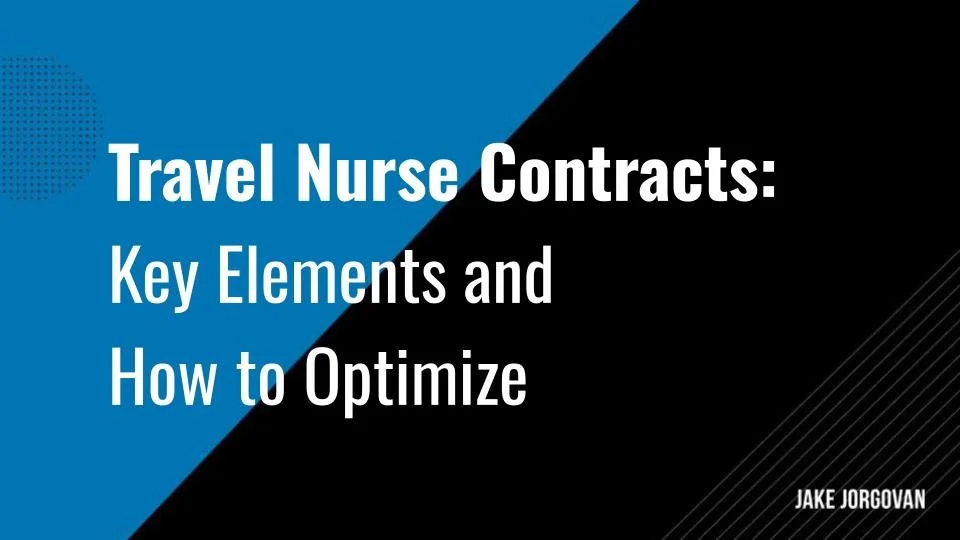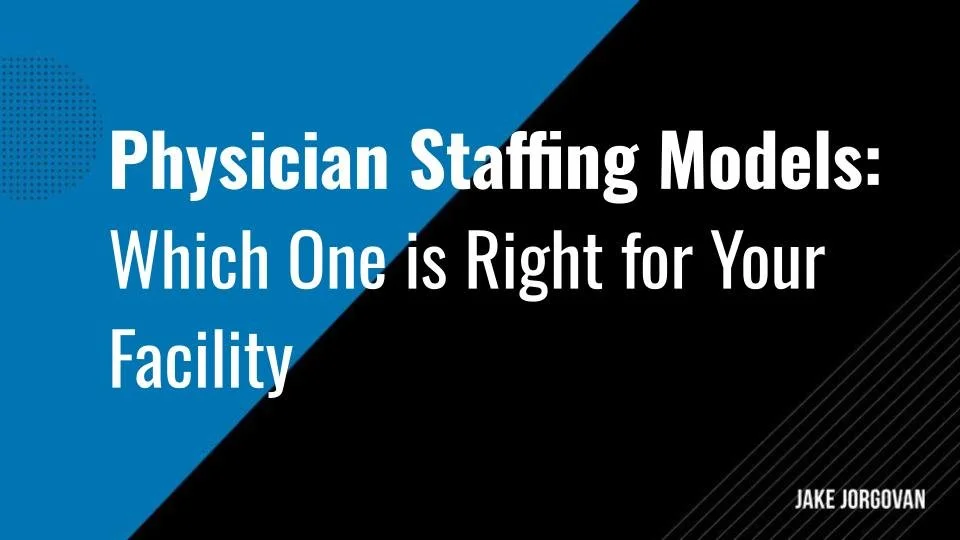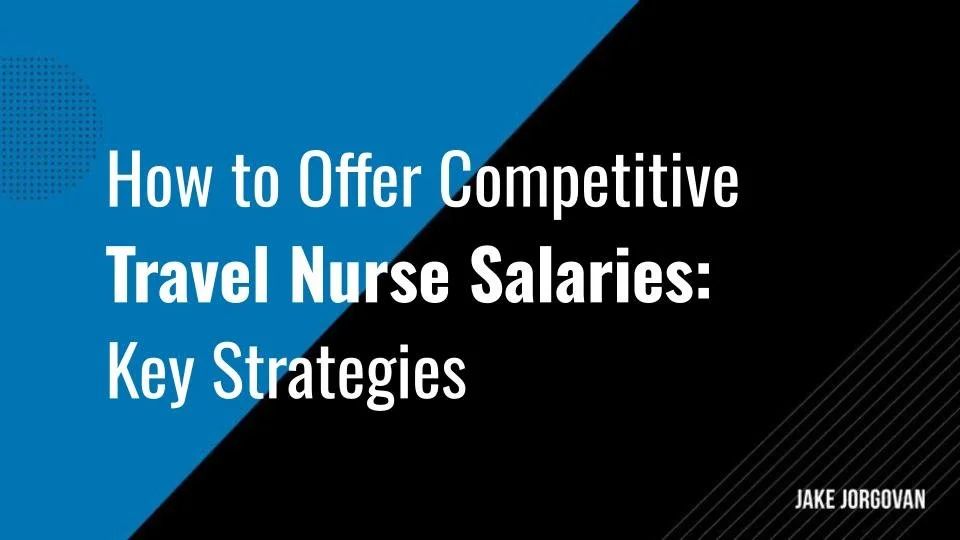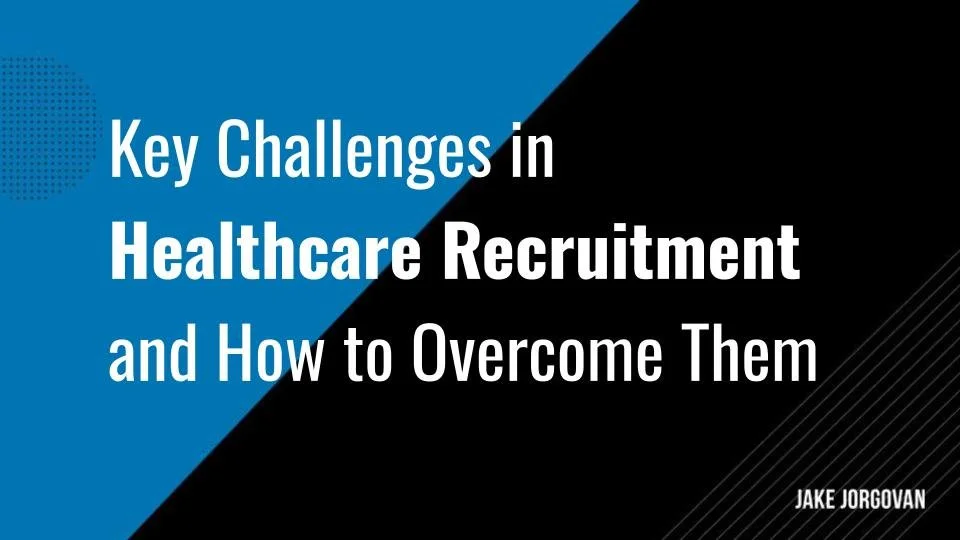How to Conduct Effective Physician Recruitment Interviews: 5 Key Strategies
Finding the right physician for your healthcare organization is a challenge, but effective recruitment interviews are a powerful tool to help you select the best physician candidate.
The importance of efficient physician recruitment cannot be overstated. According to Jackson Physician Search, a physician vacancy can result in over $150,000 per month in lost revenue, depending on the specialty.
In this article, we reveal 5 key strategies to conduct top-notch physician job interviews.
Mastering these techniques is essential for successful physician recruitment.
Ready to transform your hiring process?
Let's dive in.
Key Trends in Physician Recruitment
Let’s start by unpacking a few of the most important trends in the world of physician recruitment right now:
Intensifying Physician Shortage: The physician shortage continues to worsen, with the average time to fill a primary care physician position reaching 125 days and 135 days for specialists. This prolonged vacancy period can significantly impact patient care and facility operations. To mitigate this, healthcare organizations should streamline their recruitment processes and consider offering incentives to attract candidates.
Integration of Advanced Practice Providers (APPs): To address physician shortages, there is an increasing reliance on Advanced Practice Providers (APPs), such as nurse practitioners and physician assistants. This strategy helps fill care gaps and maintain service levels. Healthcare facilities should develop clear role definitions and provide support for APPs so they can effectively integrate into care teams.
Emphasis on Diversity, Equity, and Inclusion (DEI): There is a growing focus on DEI in physician recruitment, recognizing that diverse teams can improve patient care and organizational culture. Implementing DEI initiatives can help attract a broader range of candidates and improve healthcare outcomes.
Adoption of Technology in Recruitment: The use of technology, including artificial intelligence (AI) and data analytics, is transforming the physician recruitment process. These tools can streamline candidate sourcing, improve matching accuracy, and improve the overall efficiency of hiring. Healthcare facilities should invest in modern recruitment technologies to stay ahead.
Growing Demand for Telemedicine Proficiency: The rise of telemedicine has become a significant aspect of healthcare delivery. Physicians proficient in telehealth are increasingly sought after, as this mode of care expands access and convenience for patients. Recruiting physicians with telemedicine experience can position healthcare facilities to meet evolving patient preferences.
Challenges with Physician Recruitment Interviews
Physician recruitment interviews present unique challenges that impact the quality of your hires.
The first challenge lies in accurately assessing clinical skills and competencies. Standard interview questions often fail to capture the depth of a candidate's expertise. You must devise complex, scenario-based questions that mimic real-world situations. This approach requires preparation and expertise.
Another challenge is evaluating cultural fit. Physicians need to excel clinically and align with their practice’s values and work environment. Cultural misalignment can lead to higher turnover rates and decreased job satisfaction. In fact, 73% of employees left one job or another because of cultural mismatch. Crafting questions that probe deeply into the candidate’s values, work habits, and interpersonal skills will help you avoid that.
Time constraints also pose a significant hurdle. Thorough interviews require time, yet both candidates and interviewers often have packed schedules. Balancing comprehensive evaluations with efficient time use is difficult. Streamlining the interview process without compromising the quality of the assessment is crucial.
Bias is another issue that can skew interview outcomes. Conscious and unconscious biases can affect interviewers' objectivity. Implementing standardized questions and evaluation criteria helps mitigate this risk. Training interviewers to recognize and counteract their biases is also necessary.
Maintaining candidate engagement throughout the recruitment process is also challenging. Top-tier physicians often have multiple offers and opportunities. For instance,a survey revealed that 56% of final-year medical residents received 100 or more job solicitations during their training. Clear communication and a well-structured interview process keep candidates interested. Highlighting the unique benefits and growth opportunities within your practice can make a significant difference.
5 Strategies for Conducting Effective Physician Interviews
Addressing the challenges above requires a strategic and informed approach. It is crucial to refine your interview process continuously and seek feedback to enhance its effectiveness. Engaging with current staff for their insights on the interview process can provide valuable perspectives. This helps you attract and retain the best talent for your practice.
Now, let’s get into the exact steps.
1) Create a Structured Interview Guide for the Role and Culture
Your interview process sets the tone for the candidate's perception of your practice. A structured interview guide streamlines this process and helps you assess candidates consistently.
Research indicates that structured interviews have a much higher predictive validity than unstructured interviews, which makes them significantly more effective in forecasting job performance.
This approach saves time and also ensures you focus on the qualities that matter most. Here’s how to get started:
Define Key Competencies: Identify the skills, experience, and attributes essential for the role. Consider both clinical and soft skills. Be clear on what makes an ideal candidate for your practice.
Create a Standardized Format: Develop a uniform structure for each interview. Include a mix of questions that cover technical expertise, problem-solving abilities, and cultural fit.
Prepare Role-Specific Questions: Tailor questions to the specific position you're hiring for. Focus on scenarios and experiences relevant to the role. This helps gauge the candidate’s practical knowledge and suitability.
Develop a Rating System: Establish a consistent method for evaluating responses. Use a numerical scale or descriptive categories. This promotes fairness and objectivity.
Include Open-Ended Questions: Craft questions that encourage detailed responses. Avoid yes/no questions. This provides deeper insight into the candidate’s thought processes and experiences.
Incorporate Follow-Up Questions: Plan for follow-ups based on initial responses. This digs deeper into the candidate’s answers. It also helps clarify their qualifications and fit.
Document the Process: Take detailed notes during the interview and record key points and impressions. This will help you compare candidates later.
Train Interviewers: Ensure all interviewers understand the guide. Conduct training sessions to align everyone on the process. This ensures consistency across all interviews.
Insider Tip:
We always recommend running mock interviews within your team before the actual interview. This practice highlights any gaps or improvements needed in your structured guide. It’s a great way to refine your approach and ensure a seamless process for the actual candidates.
2) Ask Behavioral and Situational Questions
Understanding a candidate’s behavior in real-world scenarios reveals their true capabilities. Behavioral and situational questions help you assess their problem-solving skills, adaptability, and decision-making process. The graphic below shows the difference between these two question types:
This method goes beyond resumes to gauge practical experience and fit.
To conduct an effective physician recruitment interview, start by identifying the core competencies necessary for the role. Focus on essential traits like teamwork, leadership, and patient care, and tailor your questions to reflect these attributes.
Next, craft behavioral interview questions that draw from the candidate’s past experiences. Use the STAR method (Situation, Task, Action, Result) to frame these questions and ask about specific instances where they demonstrated the required skills. Here’s a quick video on this approach:
In addition to behavioral questions, design situational questions that present hypothetical scenarios related to the role. Ask candidates how they would handle these situations to assess their problem-solving abilities and critical thinking.
Follow-up questions are essential to dive deeper into their responses and clarify any vague answers. This approach ensures a more comprehensive understanding of their experience. While assessing their responses, look for consistency in their answers, as patterns indicate reliability. Be cautious of any discrepancies that may arise.
Incorporating role-specific scenarios is another key step. Tailor these scenarios to the specific position, focusing on common challenges in your practice. This approach highlights the candidate’s practical knowledge and readiness. Document their responses by taking detailed notes on each answer, recording key points and impressions to facilitate better candidate comparisons.
Finally, train interviewers to ensure consistency in questioning and evaluation. Conduct training sessions to align all interviewers on best practices, as this is one of the most effective ways to promote uniformity across the interview process.
In the context of physician recruitment, the importance of effective interviewing is underscored by the significant time required to fill positions. For instance, in 2023, the average time to fill a specialty care physician position increased to 138 days, up from 126 days in 2022. Surgical physician recruitment also saw an increase, with an average time to fill of 147 days in 2023, compared to 121 days in 2022.
3) Use a Panel Interview for Diverse Perspectives
Panel interviews provide multiple perspectives and enrich the evaluation process. Diverse viewpoints ensure a thorough assessment of a candidate’s skills and fit. This method also balances biases and highlights different strengths and weaknesses.
According to research, 34% of organizations use panel interviews to evaluate candidates.
The graphic below highlights some pros and cons of panel interviews.
Here’s how to use this strategy:
Select Diverse Interviewers: Choose panel members from various departments. Include clinicians, administrators, and peers to ensure a well-rounded evaluation.
Define Roles and Responsibilities: Assign specific roles to each panelist and determine who will ask which questions. This keeps the interview organized.
Coordinate Questions: Develop a cohesive question set. Ensure each panelist’s questions complement rather than duplicate others. This maximizes the range of insights gathered.
Brief the Panel: Conduct a pre-interview meeting to share candidate resumes and key points. This ensures everyone is on the same page.
Establish Evaluation Criteria: Agree on what qualities and skills are most important. Use a standardized scoring system. That’s one of the best ways to maintain objectivity.
Facilitate Balanced Participation: Manage the interview flow to allow each panelist to contribute. Rotate questioning to keep the candidate engaged. The point is to get a comprehensive view of the candidate.
Encourage Open Dialogue: After the interview, hold a debrief session. Discuss observations and impressions to foster a holistic assessment.
Document Feedback: Collect and record each panelist’s feedback. Use a standardized form for consistency and smoother, more informed decision-making.
Insider Tip:
We recommend including a patient or patient representative on the panel. This unique perspective can provide invaluable insights into the candidate’s potential bedside manner and patient interaction skills. It’s a small step that can make a significant difference in evaluating a candidate’s fit for your practice.
4) Include Case Studies or Clinical Scenarios
Case studies and clinical scenarios are pivotal in evaluating a candidate’s practical skills. They simulate real-life situations and reveal how candidates think and act under pressure. This method highlights both their clinical knowledge and their problem-solving abilities.
Incorporating case-based discussions (CBDs) into assessments has been shown to improve clinical reasoning and decision-making skills. A critical analysis of CBDs suggests that they are effective in assessing a trainee's decision-making process, which is crucial for real-world medical practice.
To effectively incorporate case-based assessments into your physician recruitment process, start by selecting relevant scenarios that reflect common or critical situations in your practice. This ensures that the cases are meaningful and test a range of skills necessary for the role. Once the scenarios are chosen, develop detailed case studies by including patient history, symptoms, and any relevant medical data. The complexity of these cases should challenge candidates and provide insight into their clinical reasoning.
Next, prepare clear instructions outlining what is expected from the candidate. Specify whether they need to diagnose, create a treatment plan, or suggest follow-up actions. Setting these expectations helps ensure a structured and objective evaluation. As the candidate works through the scenario, evaluate their problem-solving skills by observing their diagnostic approach and decision-making. Pay close attention to their logical reasoning and clinical judgment.
In addition to problem-solving, assess the candidate’s communication abilities by noting how they explain their thought process. Clear, concise communication is crucial in clinical settings, and their ability to articulate their decisions and rationale is a key factor in determining their fit for the role. If possible, incorporate scenarios that require teamwork to assess how they collaborate with others and function within a team dynamic.
To maintain consistency in evaluation, use a standardized evaluation form that includes sections for different competencies and overall impressions. This ensures an objective comparison between candidates. Finally, conduct a debriefing session with the candidate to discuss their approach and reasoning. Providing feedback and asking follow-up questions will offer deeper insight into their decision-making process and overall suitability for the position.
Insider Tip:
We suggest incorporating technology into your scenarios, such as electronic health records or telemedicine tools. This not only tests their technical skills but also their adaptability to modern healthcare practices. It’s an effective way to gauge their readiness for a tech-driven medical environment.
5) Discuss Values, Expectations, and Career Development
Discussing values, expectations, and career development is essential in physician recruitment. The graphic below shows a few examples of core values in the medical industry:
This strategy helps align candidate aspirations with your practice’s goals. It ensures a mutual understanding of professional growth opportunities and organizational culture. Here’s how to implement this strategy:
Clarify Your Practice’s Values: Start the conversation by sharing your practice’s core values. Explain how these values influence daily operations and patient care. This will help candidates understand what is important to your organization.
Outline Role Expectations: Clearly define the expectations for the role. This includes clinical responsibilities, patient load, and administrative duties. This transparency helps candidates gauge if they are a good fit.
Discuss Career Development Opportunities: Highlight the opportunities for professional growth. Talk about available training programs, certifications, and continuing education. This demonstrates your commitment to their career advancement.
Address Work-Life Balance: Discuss policies and practices that support work-life balance. Mention flexible scheduling, parental leave support, and wellness programs. This will reassure candidates that you value their overall well-being.
Explore Long-Term Career Goals: Ask candidates about their long-term career aspirations and discuss how your practice can support these goals. This conversation helps build a long-term relationship. A 2019 survey found that over 20% of doctors plan to make a career change within 12 months, with as many as 70% of physicians across all specialties changing jobs within their first two years.
Explain the Evaluation Process: Outline how performance will be measured and reviewed. Discuss feedback mechanisms and opportunities for improvement. This sets clear expectations for ongoing development.
Highlight Mentorship Programs: If available, mention any mentorship or peer-support programs. Explain how these programs work and their benefits. The point is to emphasize a supportive professional environment.
Ensure Cultural Fit: Discuss the practice’s culture and team dynamics. Share insights on collaboration, communication styles, and conflict resolution. This helps candidates assess their fit within the team.
Insider Tip:
We recommend creating a visual roadmap of potential career paths within your practice. This tool can effectively illustrate growth opportunities and help candidates visualize their future with your organization. It’s a powerful way to engage top talent and show your investment in their career development.
Common Mistakes When Interviewing Physicians
Conducting effective physician interviews is essential for selecting the right candidates for your healthcare facility. However, several common mistakes can hinder this process. Here are some pitfalls to avoid:
Overemphasis on Technical Competence: Focusing solely on a candidate's clinical skills without assessing their interpersonal abilities can lead to hiring individuals who might struggle to integrate well into your team. It's essential to evaluate both technical expertise and soft skills, such as communication and empathy, to ensure a well-rounded fit.
Talking Too Much During the Interview: Interviewers sometimes dominate the conversation, leaving little opportunity to learn about the candidate. Give the candidate room to speak so you can gain insights into their experiences and qualifications.
Failing to Establish Rapport: Neglecting to build a connection with the candidate can result in a lack of meaningful discussion. Begin the interview by putting the applicant at ease to encourage open and informative dialogue.
Not Preparing Adequately: Entering an interview without a clear plan or understanding of the candidate's background can lead to ineffective assessments. Review the applicant's resume thoroughly and prepare relevant questions in advance.
Overselling the Position: Promising more than the role can deliver may lead to future dissatisfaction and turnover. Be transparent about job responsibilities, expectations, and any challenges associated with the position.
By being mindful of these common mistakes and implementing strategies to avoid them, healthcare facilities can enhance their interview process and select candidates who are well-suited to their organizational culture and demands.
Conduct Better Interviews to Attract Top Talent
Effective physician recruitment interviews are vital to building a strong healthcare team.
Implementing these 5 strategies will improve your hiring process.
Remember, the right questions reveal the best candidates. Investing time in preparation pays off in quality hires.
How will you refine your interview process to attract top talent?
Your next hire could transform your patient care and skyrocket your ROI.
FAQ — Interviewing New Physicians
How do you interview a new doctor?
A structured approach works best—define key competencies, use a mix of behavioral and situational questions, and assess both clinical expertise and cultural fit. Standardizing the process with a clear evaluation framework ensures consistency and fairness.
What are good interview questions for physicians?
Effective questions include behavioral ones like, "Can you describe a time you handled a difficult patient case?" and situational ones like, "How would you respond to an unexpected medical emergency?" These reveal problem-solving abilities, adaptability, and clinical judgment.
Why is it important to interview physicians before hiring?
An interview helps assess a candidate’s technical skills, bedside manner, and alignment with your practice’s values. Hiring the wrong physician can lead to patient dissatisfaction, team friction, and costly turnover.
What are some common challenges when interviewing physicians?
Challenges include evaluating clinical competence beyond resumes, assessing cultural fit, managing scheduling constraints, mitigating interviewer bias, and maintaining candidate engagement in a competitive job market.
























